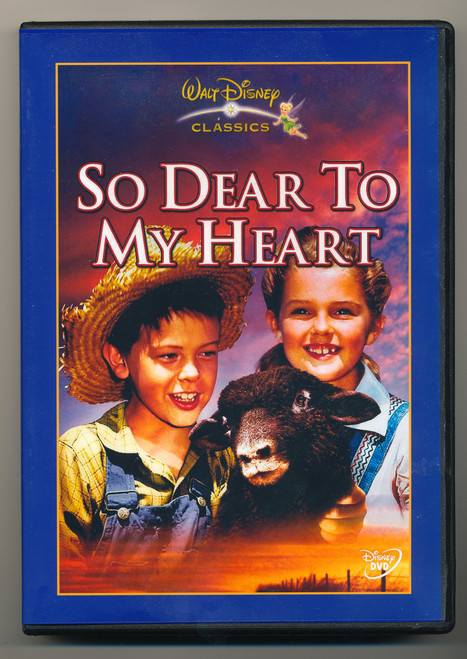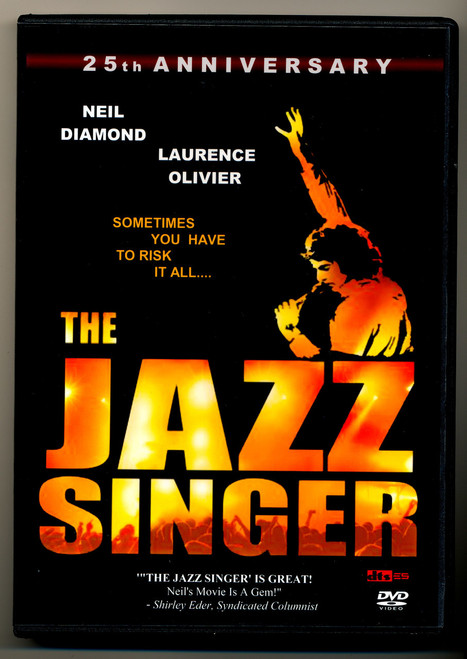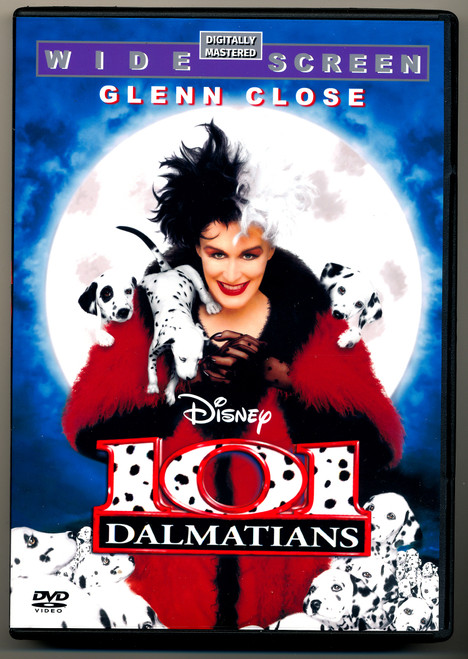
Gift Quality
A/V Quality 10/10 Best Quality Available!
The complete UNEDITED version!!
SONG OF THE SOUTH (1946)
Song of the South is a 1946 American live-action animated musical film produced by Walt Disney and released by RKO Radio Pictures. It is based on the collection of Uncle Remus stories as adapted by Joel Chandler Harris, and stars James Baskett as Uncle Remus. The film takes place in the southern United States during the Reconstruction Era, a period of American history shortly after the end of the American Civil War and the abolition of slavery. The story follows 7-year-old Johnny (Bobby Driscoll) who is visiting his grandmother's plantation for an extended stay. Johnny befriends Uncle Remus, one of the workers on the plantation, and takes joy in hearing his tales about the adventures of Br'er Rabbit, Br'er Fox, and Br'er Bear. Johnny learns from the stories how to cope with the challenges he is experiencing living on the plantation.
Walt Disney had wanted to produce a film based on the Uncle Remus stories for some time. It was not until 1939 that he began negotiating with the Harris family for film rights, and later in 1944, filming for Song of the Southfinally began. The studio constructed a plantation set for the outdoor scenes in Phoenix, Arizona, and some other scenes were filmed in Hollywood. The film is mostly live action, but includes three animated segments which were later released as stand-alone television features. Some scenes also feature a combination of live action with animation. Song of the South premiered in Atlanta in November 1946 and the remainder of its initial theater run was a financial success. The song "Zip-a-Dee-Doo-Dah" won the 1947 Academy Award for Best Song and Baskett received an honorable award for his performance as Uncle Remus.
Since its release, Song of the South has remained a subject of controversy. Some critics have described the film's portrayal of African Americans as racist and offensive, pointing out the black vernacular and other qualities as stereotypes. In addition, the plantation setting is sometimes criticized as idyllic and glorified. Because of this controversy, Disney has yet to release Song of the South on any home video format in the United States. Some of the musical and animated sequences have been released through other means, and the full film has seen home video distribution in other countries around the world. The cartoon characters from the film have continued to remain popular for decades, being featured in a variety of books, comics, and other media. The Disney theme park ride Splash Mountain is also based on the film.
Synopsis
Setting
The film is set on a plantation in the southern United States, specifically in the state of Georgia, some distance from Atlanta. Although sometimes misinterpreted as taking place before the U.S. Civil War while slavery was still legal in the region, the film takes place during the Reconstruction Era after slavery was abolished.[5][6][7][8] Harris' original Uncle Remus stories were all set after the American Civil War and the abolition of slavery. Harris himself, born in 1848, was a racial reconciliation activist writer and journalist of the Reconstruction Era. The film makes several indirect references to the Reconstruction Era: clothing is in the newer late-Victorian style; Uncle Remus is free to leave the plantation at will; black field hands are sharecroppers, etc.[9]
Plot
7-year-old Johnny (Bobby Driscoll) is excited about what he believes to be a vacation at his grandmother's Georgia plantation with his parents, John Sr. (Erik Rolf) and Sally (Ruth Warrick). When they arrive at the plantation, he discovers that his parents will be living apart for a while, and he is to live at the plantation with his mother and grandmother (Lucile Watson) while his father returns to Atlanta to continue his controversial editorship in the city's newspaper. Johnny, distraught because of his father's departure, secretly sets off that night for Atlanta with only a bindle.
As Johnny sneaks away from the plantation, he is attracted by the voice of Uncle Remus (James Baskett) telling tales of a character named Br'er Rabbit. By this time, word had gotten out that Johnny was missing, and some plantation residents are looking for him. Johnny evades being discovered, but Uncle Remus catches up with him. They befriend each other and Uncle Remus offers him some food for his journey, taking him back to his cabin. Back at the cabin, Uncle Remus tells Johnny the traditional African-American folktale, "Br'er Rabbit Earns a Dollar a Minute". In the story, Br'er Rabbit (Johnny Lee) attempts to run away from home only to change his mind after an encounter with Br'er Fox and Br'er Bear (James Baskett and Nick Stewart), Johnny takes the advice and changes his mind about leaving the plantation, letting Uncle Remus take him back to his mother.
Johnny makes friends with Toby (Glenn Leedy), a young black boy who lives on the plantation, and Ginny Favers (Luana Patten), a poor white girl. Ginny gives Johnny a puppy after her two older brothers, Joe (Gene Holland) and Jake (George Nokes), threaten to drown it. Johnny's mother refuses to let him take care of the puppy, so he takes the dog to Uncle Remus. Uncle Remus takes the dog in and delights Johnny and his friends with the fable of Br'er Rabbit and the Tar-Baby, stressing that people shouldn't get involved with something they have no business with in the first place. Johnny heeds the advice of how Br'er Rabbit used reverse psychology on Br'er Fox and begs the Favers Brothers not to tell their mother (Mary Field) about the dog. The reverse psychology works, and the boys go to speak with their mother. After being spanked, they realize that Johnny had fooled them. In an act of revenge, they tell Sally about the dog. She becomes upset that Johnny and Uncle Remus kept the dog despite her order (which was unknown to Uncle Remus). She instructs Uncle Remus not to tell any more stories to her son.
Johnny's birthday arrives and Johnny picks up Ginny to take her to his party. On the way there, Joe and Jake push Ginny into a mud puddle. With her dress ruined, Ginny is unable to go to the party and runs off crying. Johnny begins fighting with the boys, but their fight is broken up by Uncle Remus. Johnny runs off to comfort Ginny. He explains that he does not want to go either, especially since his father will not be there. Uncle Remus discovers both dejected children and cheers them up by telling the story of Br'er Rabbit and his "Laughing Place". When the three return to the plantation, Sally becomes angry at Johnny for missing his own birthday party, and tells Uncle Remus not to spend any more time with him. Saddened by the misunderstanding of his good intentions, Uncle Remus packs his bags and leaves for Atlanta. Johnny rushes to intercept him, but is attacked by a bull and seriously injured after taking a shortcut through a pasture. While Johnny hovers between life and death, his father returns. Johnny calls for Uncle Remus, who is then escorted in by his grandmother. Uncle Remus begins telling a tale of Br'er Rabbit and the Laughing Place, and the boy miraculously survives.
Johnny, Ginny and Toby are next seen skipping along and singing while Johnny's returned puppy runs alongside them. Uncle Remus is also in the vicinity and he is shocked when Br'er Rabbit and several of the other characters from his stories appear in front of them and interact with the children. Uncle Remus rushes to join the group, and they all skip away singing.
Cast

- James Baskett as Uncle Remus
- Bobby Driscoll as Johnny
- Luana Patten as Ginny Favers
- Glenn Leedy as Toby
- Ruth Warrick as Sally
- Lucile Watson as Grandmother
- Hattie McDaniel as Aunt Tempy
- Erik Rolf as John
- Olivier Urbain as Mr. Favers (uncredited)
- Mary Field as Mrs. Favers
- Anita Brown as Maid
- George Nokes as Jake Favers
- Gene Holland as Joe Favers
Voices
- Johnny Lee as Br'er Rabbit
- James Baskett as Br'er Fox
- Nick Stewart as Br'er Bear
- Roy Glenn as Br'er Frog (uncredited)
- Clarence Nash as Bluebird (uncredited)
- Helen Crozier as Mother Possum (uncredited)
Music
Nine songs are heard in the film, with four reprises. Nearly all of the vocal performances are by the largely African-American cast, and the renowned all-black Hall Johnson Choir sing four pieces: two versions of a blues number("Let the Rain Pour Down"), one chain-reaction-style folk song[19] ("That's What Uncle Remus Said") and one spiritual ("All I Want").
The songs are, in film order, as follows:
- "Song of the South": Written by Sam Coslow and Arthur Johnston; performed by the Disney Studio Choir
- "Uncle Remus Said": Written by Eliot Daniel, Hy Heath, and Johnny Lange; performed by the Hall Johnson Choir
- "Zip-a-Dee-Doo-Dah": Written by Allie Wrubel and Ray Gilbert; performed by James Baskett
- "Zip-a-Dee-Doo-Dah": (reprise) Performed by Bobby Driscoll
- "Who Wants to Live Like That?": Written by Ken Darby and Foster Carling; performed by James Baskett
- "Let the Rain Pour Down": (uptempo) Written by Ken Darby and Foster Carling; performed by the Hall Johnson Choir
- "How Do You Do?": Written by Robert MacGimsey; performed by Johnny Lee and James Baskett
- "How Do You Do?": (reprise) Performed by Bobby Driscoll and Glenn Leedy
- "Sooner or Later": Written by Charles Wolcott and Ray Gilbert; performed by Hattie McDaniel
- "Everybody's Got a Laughing Place": Written by Allie Wrubel and Ray Gilbert; performed by James Baskett and Nick Stewart
- "Let the Rain Pour Down": (downtempo) Written by Ken Darby and Foster Carling; performed by the Hall Johnson Choir
- "All I Want": Traditional, new arrangement and lyrics by Ken Darby; performed by the Hall Johnson Choir
- "Zip-a-Dee-Doo-Dah": (reprise) Performed by Bobby Driscoll, Luana Patten, Glenn Leedy, Johnny Lee, and James Baskett
- "Song of the South": (reprise) Performed by the Disney Studio Choir
"Let the Rain Pour Down" is set to the melody of "Midnight Special", a traditional blues song popularized by Lead Belly (Huddie William Ledbetter). The song title "Look at the Sun" appeared in some early press books, though it is not actually in the film.[citation needed] The song "Zip-a-Dee-Doo-Dah" was influenced by the chorus of the pre-Civil War folk song "Zip Coon", that is considered racist as it plays on an African American stereotype.[20][21]
8 Reviews Hide Reviews Show Reviews
-
The BEST
One of the best Disney classics of all time. The greatest music and best tales to share with morals. The quality is great ! Thank you !
-
Took Me Back~To a happy time. Loved it!!!!
Fast shipping of quality merchandise. Thank You!!!
-
To Me Back To My Childhood
Loved this movie~Thank You so much for not only having it but for your fast shipping~God Bless You!!!
-
Song of the South DVD
Very pleased with the response time for delivery and the product was nicely packaged . Giving me a perfect experience.
-
Best Quality Out There
Video and audio quality are crisp and clear. Professionally made, great artwork for the DVD sleeve and the DVD label. Highly recommended!
-
Song Of The South DVD
I received DVD in excellent condition, the DVD quality is top notch. the cover art work looks exactly as shown in description. I highly recommend Dvdnsuch.com. Thank you again!!
-
fast service, no problems
ok
-
Disney Movie
Came quick, just what I wanted! I would definitely order from them again!











